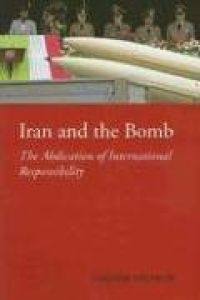Join getAbstract to access the summary!

Join getAbstract to access the summary!
Therese Delpech
Iran and the Bomb
The Abdication of International Responsibility
Columbia UP, 2007
What's inside?
Scary scenario: Iran is blatantly developing an A-bomb, no one knows how it will be used and no one is doing anything.
Recommendation
The international landscape offers a few terrifying future scenarios, including the vision of Iran with a nuclear bomb. If this threat came to pass, it would destabilize the entire Middle East, disrupt long-standing relationships, threaten other Arab nations and endanger global oil supplies. Therese Delpech takes you on a guided tour of the international diplomatic confrontations surrounding Iran’s persistent, secretive attempts to build a nuclear weapon. This foreign policy nightmare has been building for decades. Yet Iran’s new radical fundamentalist Shia government has adopted a policy of stalling, intimidation and obfuscation to hide its nuclear program. So far, it has worked. Iran has thwarted United Nations inspectors and international diplomats who have been unwilling or unable to force it to reveal its true program and intentions. While the book is dry and academic, if you are interested in foreign policy or lead an international business, getAbstract recommends this realistic professional overview.
Summary
About the Author
Therese Delpech has directed strategic studies at the French Atomic Energy Commission (CEA) since 1997. She is a researcher at the Center for Educational Research and Innovation (CERI) and a commissioner of the U.N. Monitoring, Verification and Inspection Commission.

















Comment on this summary